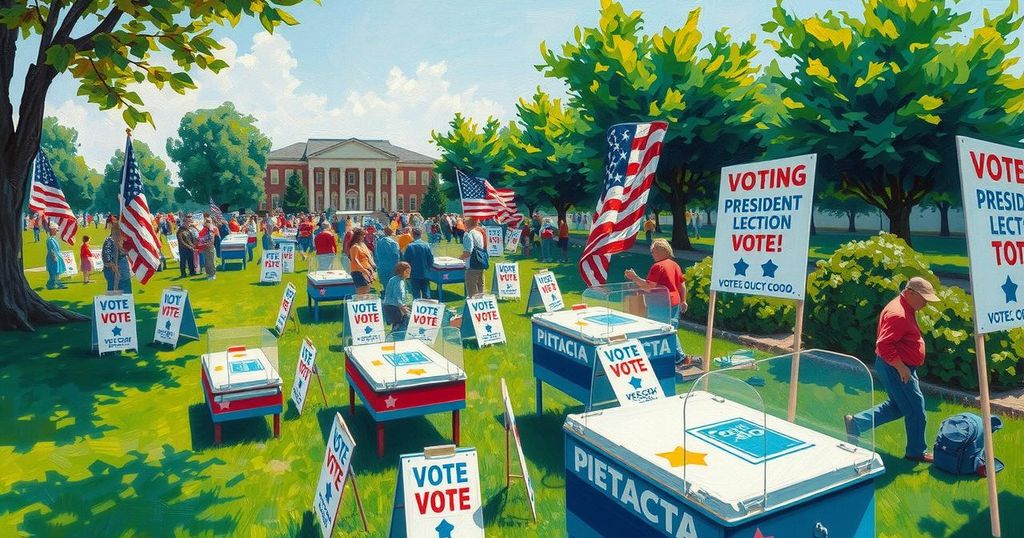Gabon Presidential Election: A Pivotal Vote Post-Military Coup
Gabon is holding its first presidential election since the military coup that ousted Ali Bongo. General Brice Oligui Nguema has altered the constitution to run, facing eight candidates, including one woman. The voting population, more than one million, seeks governance improvements amid poverty and unemployment. Polls close at 18:00 local time on Saturday, with results beginning Sunday.
The Gabonese populace has begun casting their ballots in the first presidential election following the military coup that ousted former President Ali Bongo. This election marks a significant shift, as for the first time in decades, no Bongo family member is contesting for the presidency. The coup leader, General Brice Oligui Nguema, who orchestrated the overthrow, has modified the constitution to qualify himself as a candidate in this election.
A total of eight candidates are on the ballot, including one female contender, Gninga Chaning Zenaba. Among the other candidates are former Prime Minister Alain Claude Bilie-by-Nze and other notable figures from the former ruling PDG party. Gabon’s election results may commence announcement on Sunday, although final counts may extend into the following week.
Approximately one million voters are anticipated to participate in the election, both within Gabon and in the diaspora, while the nation’s population stands at around 2.5 million. Despite its wealth in oil and timber resources, approximately 35% of Gabonese citizens live below the poverty line of $2 per day.
During the election campaign period, candidates focused primarily on reaching voters in rural areas, as campaign activities in the capital, Libreville, were less frequent. Oligui Nguema’s campaign materials are prevalent, overshadowing those of his rivals. Supporters, like taxi driver Landry Obame-Mezui, appreciate Nguema’s leadership style, saying he favors actions over rhetoric.
Nevertheless, Oligui Nguema faces criticism for allegedly orchestrating an biased electoral process. Changes to the electoral code and the introduction of an upper age limit have rendered some potential opposition candidates ineligible. Bilie-by-Nze, regarded as a strong rival, has called for the military leader to step back to the barracks, claiming he embodies the needed change for the nation.
Having endured 55 years under the Bongo dynasty, many Gabonese citizens express a desire for justice, equity, and a better governance model. Voter Noel Kounta expressed hope for a well-managed Gabon that prioritizes social justice, while Shonnys Akoulatele, a pharmacist, emphasized the need for job creation and greater compassion towards the struggles of workers.
Polls are slated to close at 18:00 local time (17:00 GMT) on Saturday, with the nation holding its breath for a new chapter in its leadership.
In conclusion, the presidential election in Gabon signifies a pivotal moment for the nation after years of Bongo family rule. General Brice Oligui Nguema leads the race, having adjusted the rules to favor his candidacy amidst serious electoral challenges. The Gabonese populace, characterized by high poverty levels and unemployment, seeks progressive changes in governance and social justice, while grappling with the implications of the recent coup. The outcome of the election will be closely watched both within Gabon and the international community.
Original Source: www.bbc.com




Post Comment